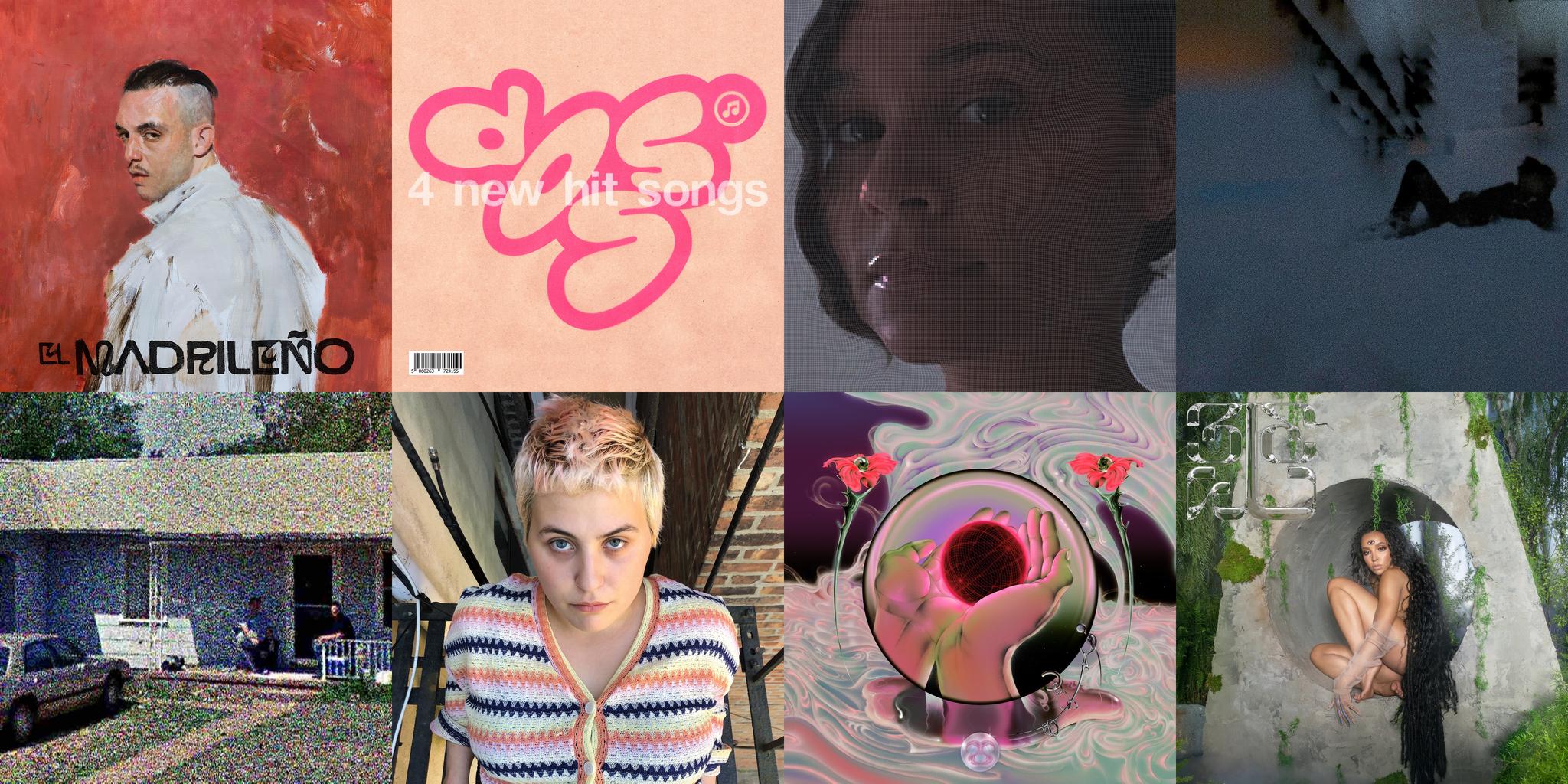
Pitchfork's Best Progressive Pop Music of 2021
From PinkPantheress’ lo-fi club cuts to Bladee’s self-deprecating sing-song raps, C. Tangana’s folkloric reimaginations to Tinashe’s featherlight fireworks, these are the songs and albums that pushed pop music forward this year.
Published: December 14, 2021 15:00
Source


Seven years after her 2014 debut, the mysterious New York producer returns with a wink and a four-pack of bright, bubbly club bangers that go just as hard on headphones when alone in the bedroom. Like her peers in PC Music, there’s a good deal of nostalgia embedded in Doss’ futurism, and for scenes that haven’t always gotten their electronic-music-snob dues (such as the night-drive anthem “Puppy,” which nods to early-’00s progressive house like deadmau5 and Kaskade). From the introverted tech-house of “Look” to the wallowy shoegaze of “Strawberry,” there’s a sense of longing that ties it all together—an ache that only a solo dance-floor session can heal.



One of the first albums the teenage producer bought on iTunes (or, rather, that their mom bought for them) was Childish Gambino’s *Because the Internet*; that title is also a pretty spot-on description of digicore, the genre pioneered by Gen Z bedroom artists that sounds like the internet feels. Still, there’s a realness to *Frailty*, the second album from dltzk, that transcends the digital. With its fuzzy guitar chords and yearning high school poetry (like “Time passed with a slap to the back of my head,” from the hyper-catchy unrequited-love ballad “Your Clothes”), this is emo music rigged with the pyrotechnics of EDM and the absurdity of meme culture, minus the irony. There’s a sweetness to the youthful chaos, something to relate to even if you didn’t spend your adolescence scrolling.


The retro-futuristic duo (Mica Tenenbaum and Matthew Lewin) hails from LA by way of the uncanny Valley, churning out trippy DIY videos made from random VHS footage and mailing weird brochures to fans like a secretive cult. But on debut full-length *Mercurial World*, their polished synth-pop demands to be taken seriously, though their playful spirit abides—emulating the effects of a VOCALOID with their mouths, kicking off the album with a track called “The End.” Tenenbaum and Lewin blend the nostalgic with the contemporary, combining Y2K-era bubblegum, the disco grooves of mid-aughts indie-dance crossovers, and the space-age sheen of hyperpop for a 45-minute sugar rush; don’t miss “Chaeri,” 2021’s best pop song about being a bad friend.
www.mercurialworld.com

When Tinashe parted ways with her label in 2019, she welcomed the opportunity to take full control of her creative output. First came *Songs for You*, an acclaimed album that found the singer basking in her newfound liberation. *333* follows suit, as she bends and blurs lines to meld pop and R&B with electronic and hip-hop elements. In an interview with Apple Music’s Zane Lowe, she points to the stunning title track, a shape-shifting adventure that morphs from a stripped bed of harmonies into an orchestral dreamscape, as an example of her genre-busting pursuits. “I\'ve always been inspired by James Blake and his use of silence, so I wanted to incorporate that on this project,” she explains. “I think that song is a perfect example of— to me, it doesn\'t fit like a particular genre at all. That\'s why I love it, is because it\'s just a sonic experience.” Elsewhere, songs like “Let Me Down Slowly” or “Bouncin’, Pt. 2” further highlight her experimental streak, playing with tempos and atmosphere. Such moments stand in contrast to the album’s more constrained moments, but taken together, they all create a collage of both Tinashe’s inspirations and aspirations. “I\'m really proud of myself with this project because I just feel like I took all of the things that I learned about what I didn\'t want to do, about how I didn\'t want to move, about like what doesn\'t feel right,” she says. “It\'s really helped me develop just a much more centered idea of what my art and my project and my purpose is.”
